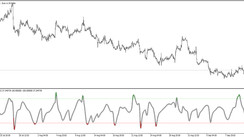The Daunting Challenge of Trading Profits
Achieving consistent and substantial profits from financial market trading is often far more complex than it appears to novices. Some informal estimations point to a staggering 80% or more of aspiring traders failing and resorting to more secure pursuits. Brokerages are often reluctant to reveal client failure rates, probably for fear of discouraging potential new account openings. Realistically, the percentage of those who give up might even exceed the 80% conjecture.
Achieving long-term trading success is a rigorous task, and those who manage to turn a consistent profit possess unique attributes. Here are 20 invaluable rules, leveraged by seasoned pros, that could place you in the profitable elite.
Vital Takeaways: Crucial Wisdom for Profitable Trading
- A majority of traders fail, making consistent profitability a rare achievement.
- Uncovering strategies that deliver more profits than losses is crucial for success.
- Many traders falter because their strategies do not adapt to changing market conditions.
- Time-tested advice from professional traders can help maintain a focus on profitability.
The Journey to Sustained Trading Profitability
Two interrelated skills are crucial for long-term profitability. First, identifying and integrating strategies into a trading plan that yields more gains than losses. Second, these strategies need to exhibit resilience during the market's bull and bear phases. Many traders can profit in specific market conditions, like a robust uptrend, but they falter over time due to their strategies' inability to adjust to the market's inevitable shifts.
How can you differentiate yourself from the crowd of hopeful traders and set yourself on the path towards trading triumph? Begin with a solid, succinct plan incorporating proven strategies, and apply the following 20 golden rules.
1. Maintain Your Discipline
Discipline isn't a commodity you can purchase from a seminar or sophisticated trading software. Many traders invest heavily in attempts to substitute their self-control, unaware that introspection can achieve the same results at a significantly lower cost. The key is to remain disciplined and steadfast in your trading plan, especially during unavoidable losing streaks.
2. Stand Apart From the Masses
Sustainable profitability demands either leading or trailing the crowd, but never merging with it, as it's the target of predatory strategies. Avoid getting involved in stock boards and chat rooms, where seriousness is often lacking and hidden agendas prevail.
3. Adhere to Your Trading Plan
Regularly revise your trading plan—weekly or monthly—to include fresh ideas and remove ineffective ones. Whenever you hit a trading slump, revisit your plan for guidance.
4. Don't Shortcut Your Way
You'll find yourself in for a harsh reality check if you expect to make a profit with minimal effort while your competition is relentlessly refining their strategies. Lasting success comes only with hard work and discipline.
5. Steer Clear of the Conventional
Profit seldom comes from following the crowd. If a trading setup seems too perfect, it's likely that everyone else has also noticed it, placing you squarely in the crowd, setting the stage for failure.
6. Follow Your Trading Rules
Trading rules serve as your lifeline when trades go awry. By disregarding them, you abandon your discipline, exposing yourself to even greater losses.
7. Beware of Market Gurus
The stakes are yours, not theirs. Remember that gurus might be promoting their positions, hoping that the resulting excitement will boost their profits, not yours.
8. Trust Your Gut
Trading demands both your analytical and creative faculties. After you've mastered the math, consider enhancing your results with meditation, yoga, or tranquil nature walks.
9. Avoid Falling in Love
Over-attachment to your trading instrument or investment leads to flawed decision-making. Your job is to exploit inefficiencies and profit when others are misdirected.
10. Separate Trading and Personal Life
Personal life issues eventually seep into your trading performance, especially if you have unresolved issues regarding money, wealth, and the balance between abundance and scarcity. Manage your trading and personal needs independently.
11. Abstain from Revenge Trading
Setbacks are an integral part of the trading journey. Accept them graciously and stick to your tried-and-true strategies to get back on track. Attempting to recover from a loss by trading more, or revenge trading, usually spells disaster.
12. Heed the Warnings
Significant losses usually follow multiple technical red flags, which traders often ignore, replacing discipline with hope and setting themselves up for disappointment. Stay vigilant for early indications of changing market conditions and emerging risks to your positions.
13. Tools are Subservient to You
Attempting to compensate for skill deficiencies with expensive software can obstruct valuable learning experiences. Use tools that complement your trading plan, but remember that you're ultimately in control.
14. Be Independent
Emulating your financial heroes is natural but often counterproductive. Learn from others, then develop your unique market persona based on your skills and risk tolerance.
15. Forget the Magic Formula
Failing traders often dream of a secret formula that will magically transform their results. In reality, the path to success involves careful selection, efficient risk management, and skillful profit-taking.
16. Let Go of the Paycheck Mindset
The standard work week-paycheck paradigm conflicts with the natural progression of trading wins and losses over a year. Statistically, most annual profits are made on a few significant trading days.
17. Don't Celebrate Too Soon
Feeling good about a profitable trade is fine, but the profit isn't yours until you've closed or covered the position. Secure what you can early with trailing stops or partial profits to prevent the market from snatching your gains at the last moment.
18. Cherish Simplicity
Prioritize price action, with everything else being ancillary. Build complex technical indicators if you wish, but remember their main purpose: confirming or challenging what your eyes already perceive.
19. Come to Terms with Losses
Trading is one of the few professions where daily losses can lead to eventual success. Each trading loss imparts a valuable market lesson if you're open to learning from it. Know when to step back, accept losses, regroup, and return to the market refreshed.
20. Guard Against Reinforcement
Active trading triggers the release of adrenaline and endorphins, causing euphoria even during losses, encouraging addictive personalities to make poor decisions. If you're trading for the thrill, you're likely trading for the wrong reasons.
Do Most Beginners in Trading Fail?
Indeed, the vast majority of day traders and novices fall short within a relatively short span.
Can Investors Really Outperform the Market?
On average, no. Active investment strategies, like stock picking, generally underperform the broader market in the long run, especially after factoring in transaction costs and taxes. A passive index strategy often serves long-term buy-and-hold investors best.
The Trader's Epilogue: Ushering in Success
A multitude of traders grapple with unlocking their full potential, ultimately resorting to conventional methods to earn a living. However, you can be different. Step into the exclusive circle of proficient traders by adhering to these timeless rules laser-focused on nurturing profitability. Remember, trading is more than just numbers, it's about strategy, mindset, and consistency. Make these rules your guiding star, and you're well on your way to becoming a successful trader.





